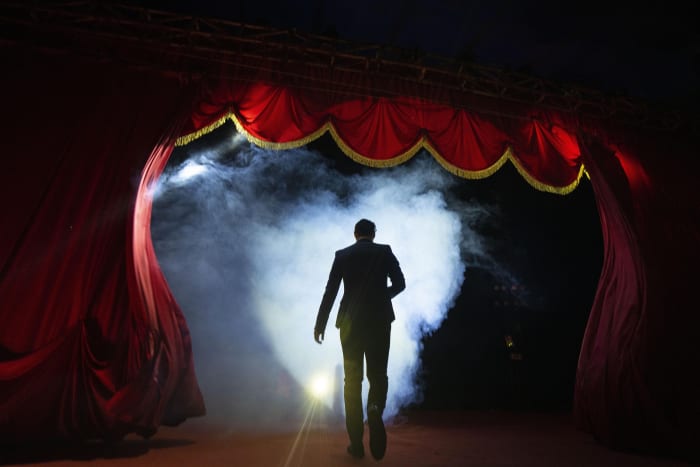
SANTIAGO – The transformation begins as night falls on this semi-desert esplanade on the outskirts of Chile’s capital, with Arturo, Alejandro and René applying makeup and donning wigs, feathers and sequins to become “Verónica Power,” “Alexandra” and “The Crazy Purse Woman.”
The characters are classics of the Timoteo Circus, a show that has fought prejudice and discrimination against Chile’s LGBTQ community for more than a half century, even through a military dictatorship, in a country known for its devout Catholicism.
“Alexandra” – played by 65-year-old Alejandro Pavés – recalled life for the performers under the regime of Gen. Augusto Pinochet, which governed the South American country from 1973 to 1990.
“It was terrible to work under the dictatorship … there was a lot of hatred for gays in Chile at that time,” Pavés told The Associated Press, recalling the number of times he had been arrested, insulted and mistreated.
“The police would arrive and take us prisoner and if they found you dressed as a woman they would give you a sodomy” charge, which would mark you for the rest of your life, Pavés said. “The owners had to hide us.”
Although it is called a circus, it is more of a sexual diversity show with humor, song and dance under a big top, and has 30 employees. At its peaks it had up to 70. The Timoteo Circus is one of the best known of Chile’s 120 circuses.
“All Chileans know Circo Timoteo, it’s like an institution,” said Stéfano Rubio, a conductor and administrative manager of the circus.
The show began in 1968 when one of the circus’ female dancers was absent for a performance. Its founder, René Valdés, had one of the male performers dress as a woman and replace her on stage. The performance was so popular the dancer did five curtain calls to receive applause. The transformation circus was born and has been committed to sexual diversity ever since.
Arturo Peña, who plays “The Crazy Purse Lady,” said that during the dictatorship the performers used to receive kicks and blows for their appearance, and the idea of carrying a purse in her act was to use in self-defense.
Pavés, who comes from a family with a strong military and religious tradition, hid his sexual identity from his family until a television program revealed what he did.
His family eventually accepted him but he says there always was the “shame of having a gay son, uncle or cousin.”
Now, he cannot see himself having any other job than the Timoteo Circus, and that when he dies he wants his funeral to be held under the circus’ big top.
“Today I work with more security, they accept me more” and the public understands the message better, he said.
